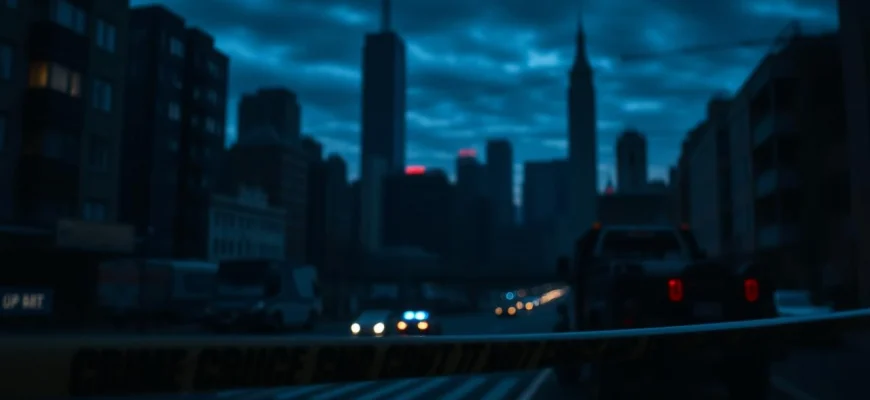If you're a fan of 'Law & Order: Organized Crime' (2021), you're likely drawn to its gripping crime narratives, intense character arcs, and procedural drama. This article is for you! We've curated a list of 10 movies and TV shows that share similar themes of organized crime, law enforcement, and high-stakes investigations. Whether you love the gritty realism or the deep dives into criminal underworlds, these picks will keep you on the edge of your seat.
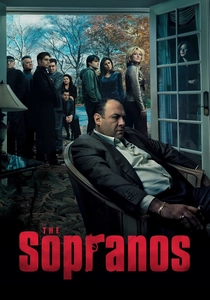
The Sopranos (1999)
Description: The Sopranos shares Organized Crime's focus on organized crime families, though from the criminals' perspective rather than law enforcement. Both shows explore themes of family, loyalty, and moral ambiguity. The New Jersey/New York setting and Italian-American criminal elements are additional similarities.
Fact: James Gandolfini was not the first choice for Tony Soprano. The famous opening sequence was shot by driving from New York to New Jersey. Many storylines were inspired by real New Jersey crime families.
 Watch Now
Watch Now 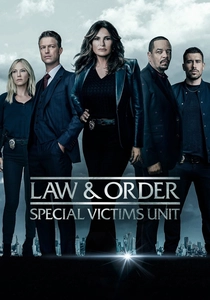
Law & Order: Special Victims Unit (1999)
Description: As a spin-off of the original Law & Order series, SVU shares the same procedural format and gritty realism as Organized Crime. Both shows focus on specialized units within the NYPD, with SVU tackling sex crimes and Organized Crime dealing with, well, organized crime. The crossover episodes between the two series further cement their connection.
Fact: Mariska Hargitay, who plays Olivia Benson, is the longest-running female character in a primetime live-action series. The show was originally going to be called 'Sex Crimes' before being renamed. Many episodes are inspired by real-life cases.
 Watch Now
Watch Now 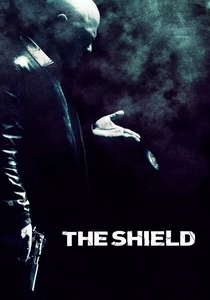
The Shield (2002)
Description: The Shield shares Organized Crime's gritty, intense portrayal of police work and morally ambiguous characters. Both shows explore corruption within law enforcement and the blurred lines between cops and criminals. The serialized storytelling and intense action sequences are comparable.
Fact: The show was FX's first original drama series. Michael Chiklis gained 30 pounds and shaved his head for the role of Vic Mackey. The famous 'money train' storyline was inspired by a real NYPD scandal.
 Watch Now
Watch Now 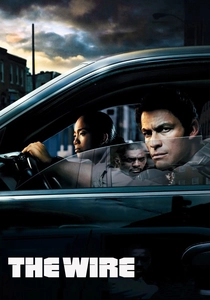
The Wire (2002)
Description: The Wire shares Organized Crime's focus on systemic criminal organizations and the institutions that combat them. Both shows offer a nuanced, realistic portrayal of urban crime, though The Wire is more ensemble-driven and socially conscious. The detailed exploration of criminal networks is a key similarity.
Fact: Many actors were real-life Baltimore residents with no prior acting experience. Creator David Simon was a Baltimore Sun crime reporter. Each season focuses on a different aspect of the city (drug trade, port, politics, etc.).
 Watch Now
Watch Now 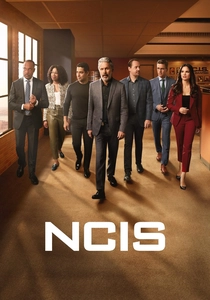
NCIS (2003)
Description: NCIS shares Organized Crime's procedural format and team-based approach to solving crimes. While NCIS focuses on naval crimes, both shows balance case-of-the-week stories with ongoing character arcs. The mix of action, investigation, and personal drama is comparable.
Fact: The show is a spin-off of JAG. Mark Harmon (Gibbs) was originally only supposed to appear in the first few episodes. The real NCIS has used the show for recruitment purposes.
 Watch Now
Watch Now 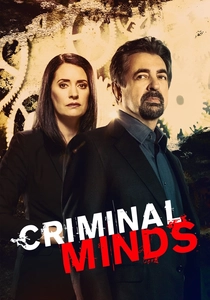
Criminal Minds (2005)
Description: Like Organized Crime, Criminal Minds focuses on a specialized law enforcement unit - in this case, the FBI's Behavioral Analysis Unit. Both shows delve into the psychology of criminals, though Criminal Minds leans more into profiling while Organized Crime focuses on criminal networks. The procedural format and team dynamics are similar.
Fact: The character of Jason Gideon was originally written for Mandy Patinkin, who left after season The show's famous opening quote ('In the criminal justice system...') is delivered by actor Mandy Patinkin. Several real FBI profilers have consulted on the show.
 Watch Now
Watch Now 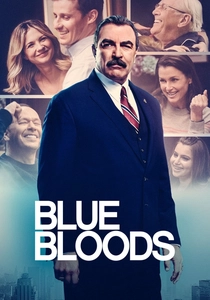
Blue Bloods (2010)
Description: Blue Bloods shares Organized Crime's focus on family dynamics within law enforcement (the Reagans vs. the Stablers). Both shows explore the personal costs of police work and the moral dilemmas officers face. The New York setting and emphasis on police procedure are additional similarities.
Fact: Tom Selleck was initially reluctant to take the role of Frank Reagan. The famous family dinner scenes are filmed last each episode. Many storylines are inspired by real NYPD cases.
 Watch Now
Watch Now 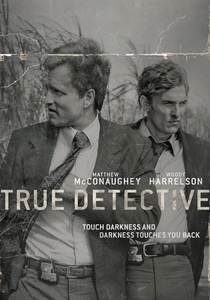
True Detective (2014)
Description: True Detective shares Organized Crime's intense, character-driven approach to crime investigation. Both shows delve into the psychological toll of police work, though True Detective is more atmospheric and philosophical. The focus on complex, flawed detectives is a key similarity.
Fact: Each season features a completely new cast and storyline. The famous six-minute tracking shot in season 1 took seven takes to perfect. Creator Nic Pizzolatto originally conceived it as a novel.
 Watch Now
Watch Now 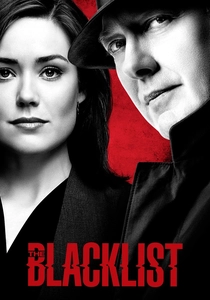
The Blacklist (2013)
Description: The Blacklist shares Organized Crime's focus on taking down criminal organizations, though it's more serialized with its overarching Reddington mythology. Both shows feature charismatic antiheroes (Reddington and Stabler) with deep underworld connections. The cat-and-mouse games with criminals are a key similarity.
Fact: James Spader improvises many of Reddington's monologues. The show was originally conceived as a 24-style real-time drama. The 'blacklist' numbers correspond to production codes for each episode.
 Watch Now
Watch Now 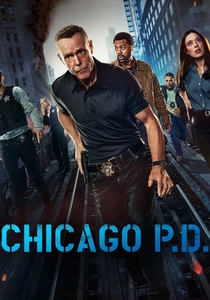
Chicago P.D. (2014)
Description: Chicago P.D. shares Organized Crime's focus on a specialized police unit tackling serious crimes in an urban setting. Both shows have a grittier, more intense tone than standard procedurals, with morally complex characters. The crossover potential with other Dick Wolf shows (like SVU) is another similarity.
Fact: The show is part of Dick Wolf's Chicago franchise, along with Chicago Fire and Chicago Med. Many exterior shots are filmed on location in Chicago. The Intelligence Unit is based on real CPD units.
 Watch Now
Watch Now 
